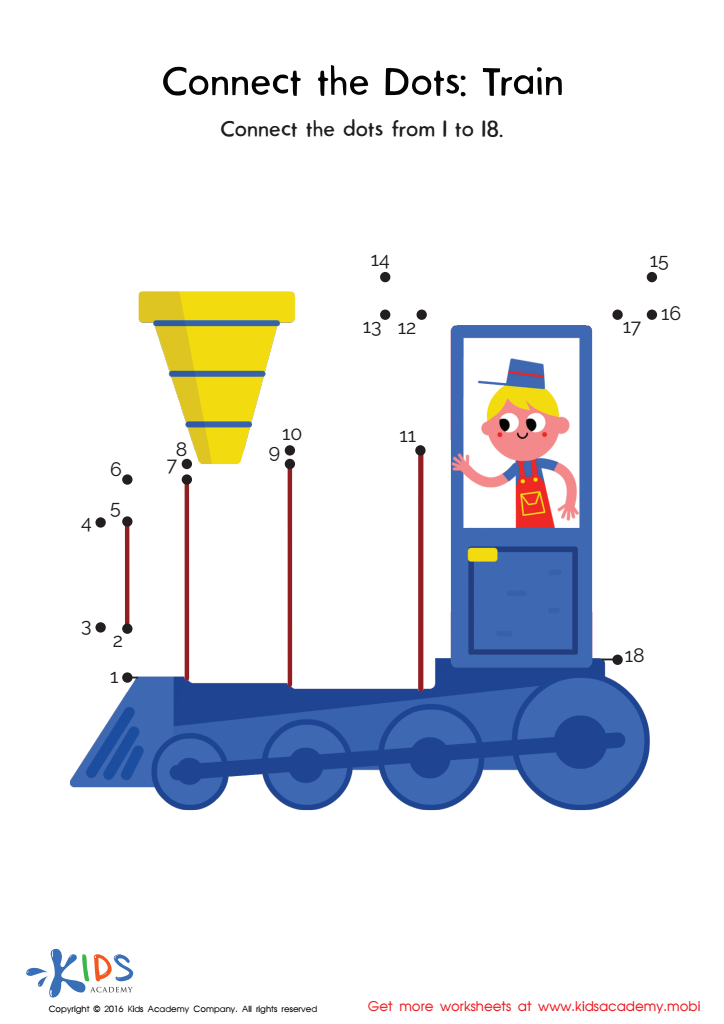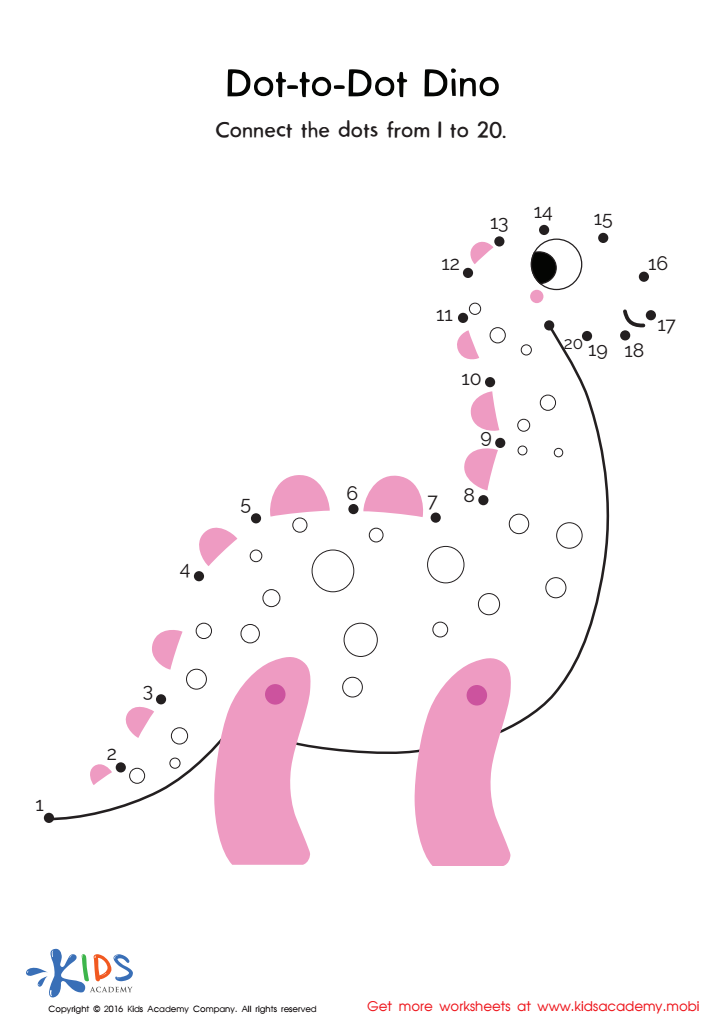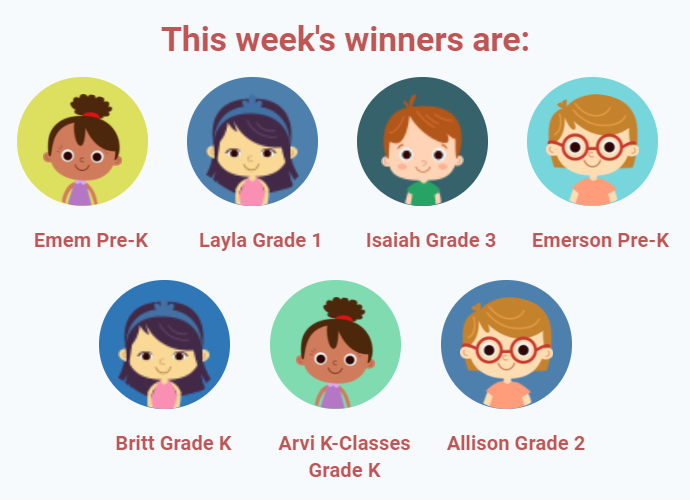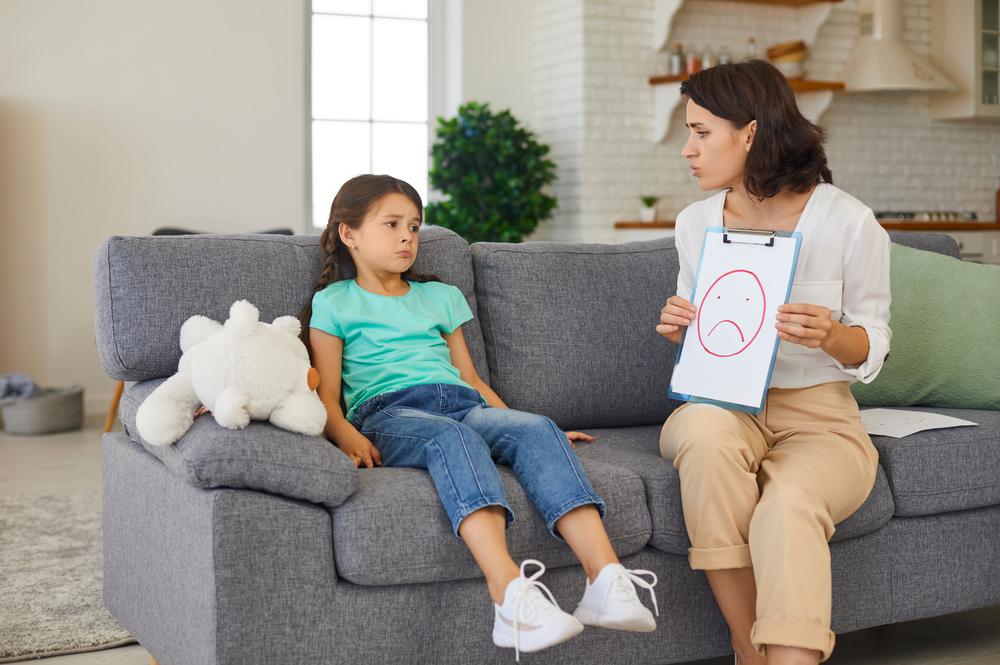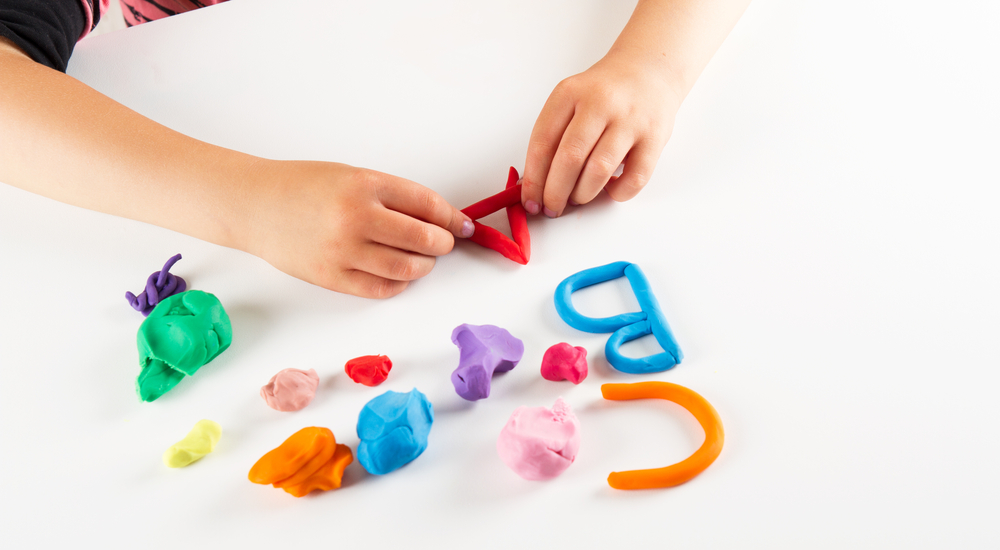Connecting the Dots Worksheets Activities With Answers for Ages 3-9
10 filtered results
-
From - To
Welcome to our engaging “Connecting the Dots Worksheets Activities With Answers for Ages 3-9”! Designed to enhance your child's artistic and cognitive skills, these fun worksheets encourage early learners to draw while improving their number recognition and hand-eye coordination. With various themes that spark creativity, children can enjoy connecting dots to create fun images, all while developing fine motor skills. Each activity draws on foundational learning goals, ensuring an educational yet fun experience. Plus, with easily accessible answer keys, parents and teachers can quickly assist kids on their journey to vibrant artwork! Explore our collection and watch your child connect the dots to learning success!
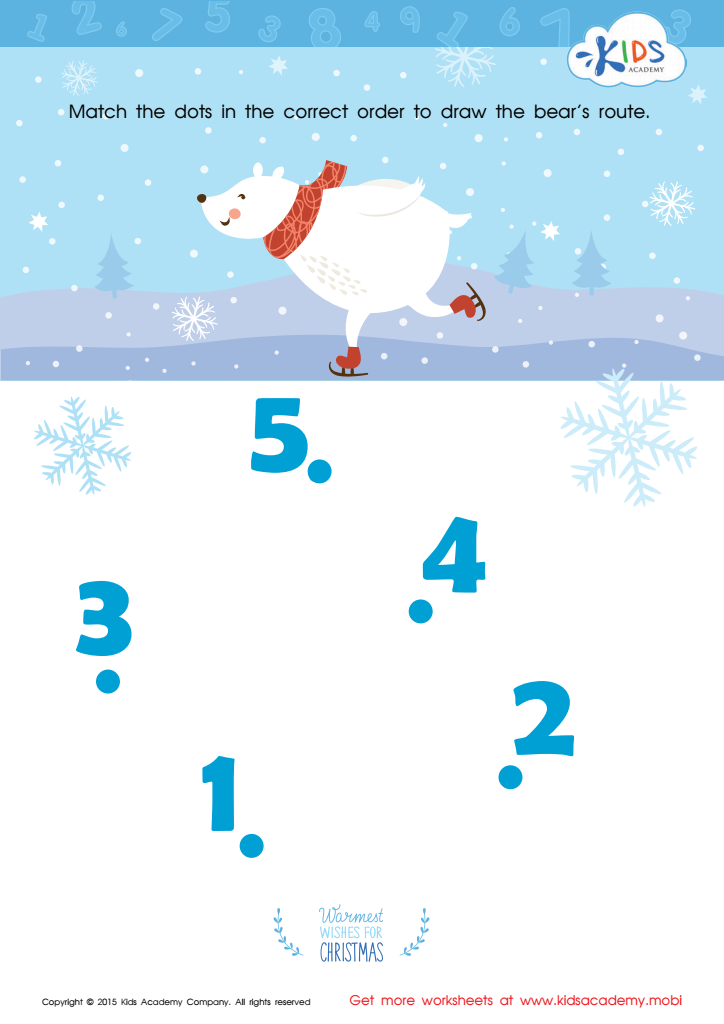

Drawing the Bear's Route by Number Worksheet
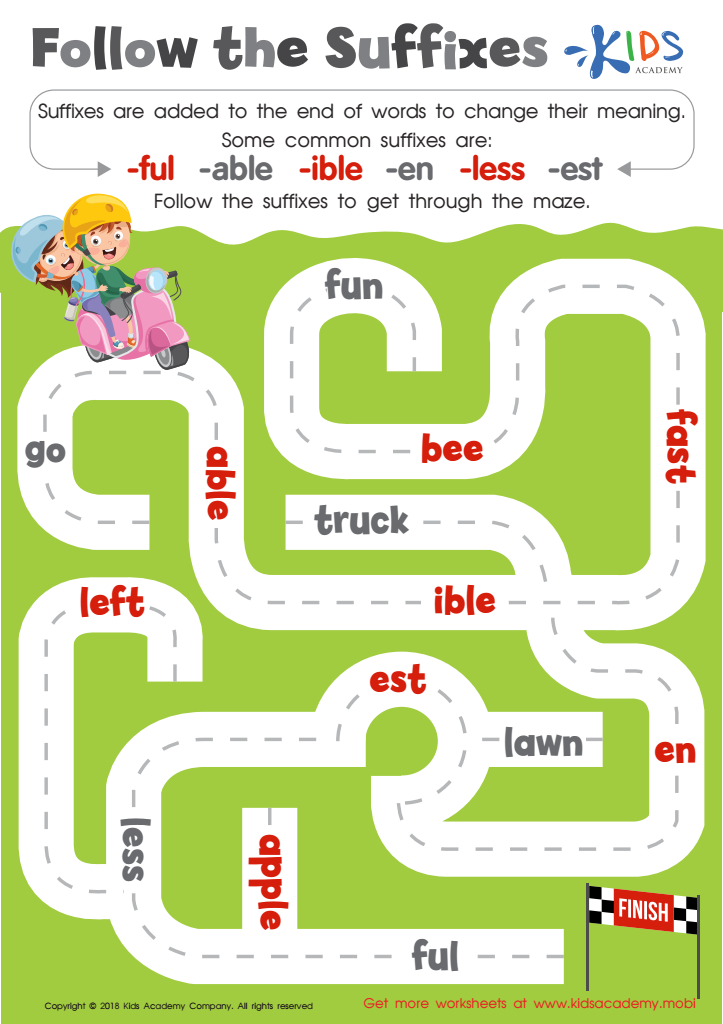

Reading: Follow the Suffixes Worksheet
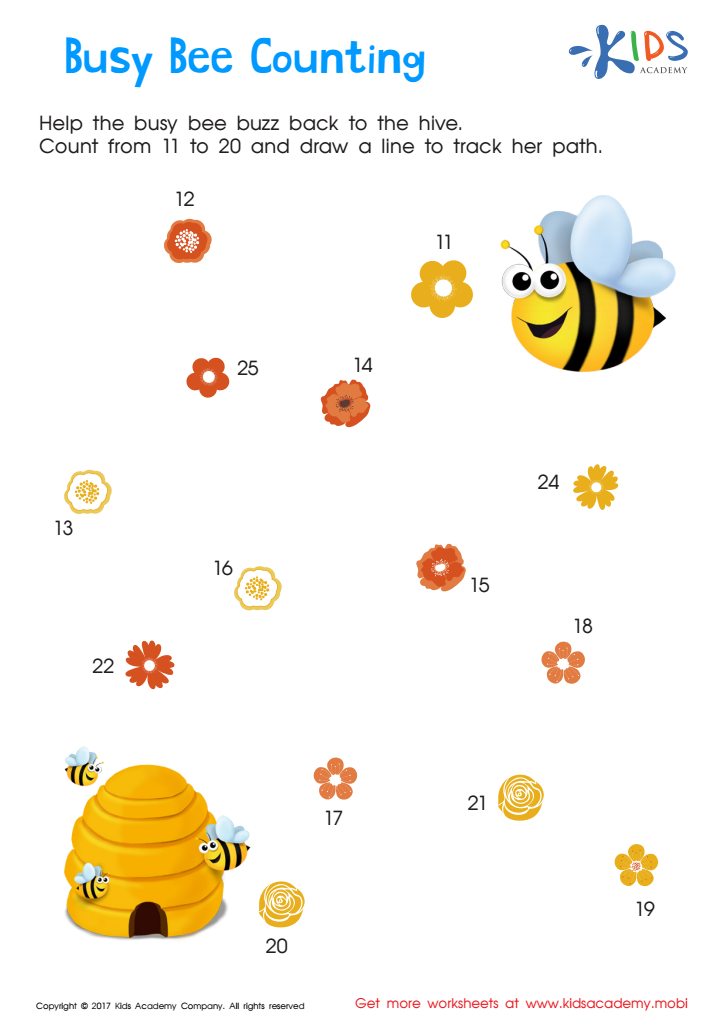

Ordering 11–20: Busy Bee Counting Worksheet
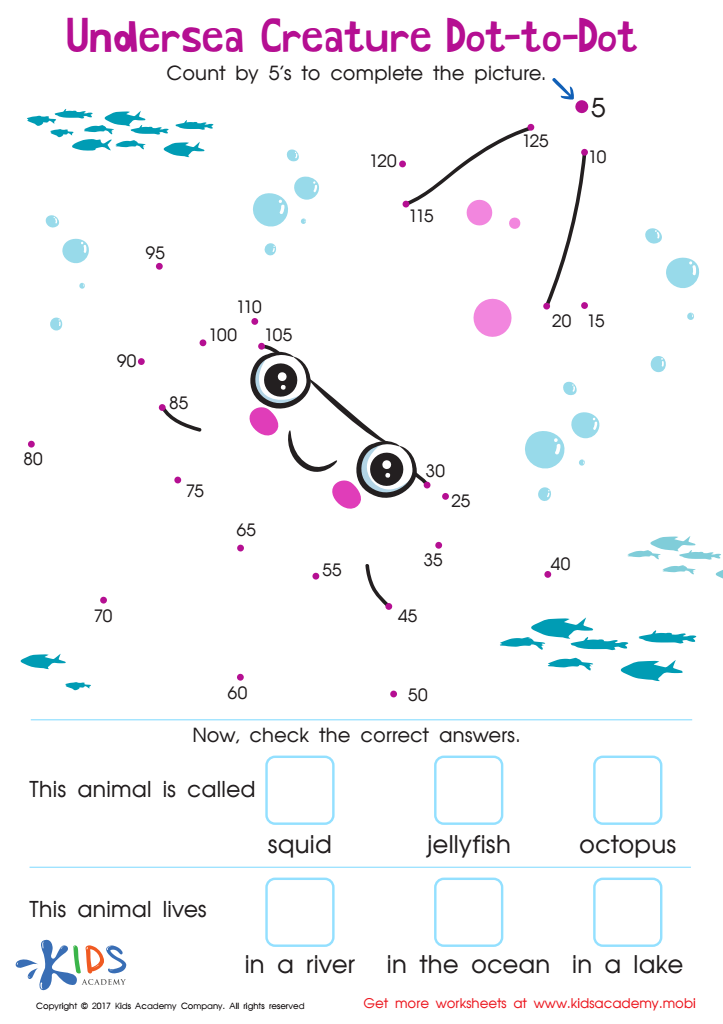

Undersea: Dot To Dot Worksheet
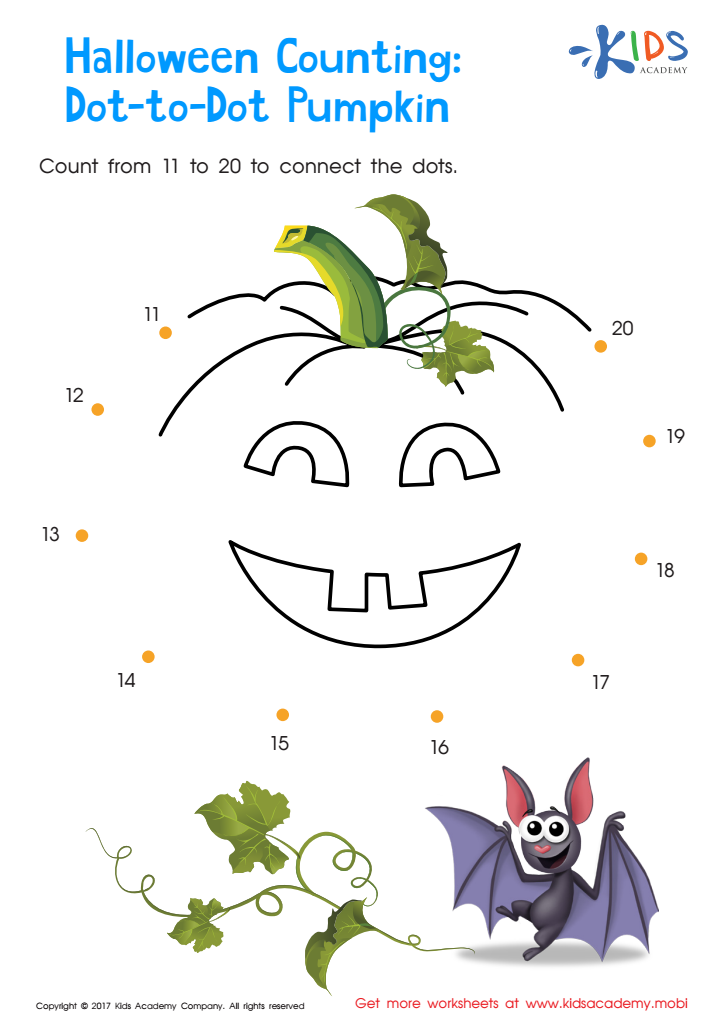

Ordering 11–20: Halloween Counting Worksheet
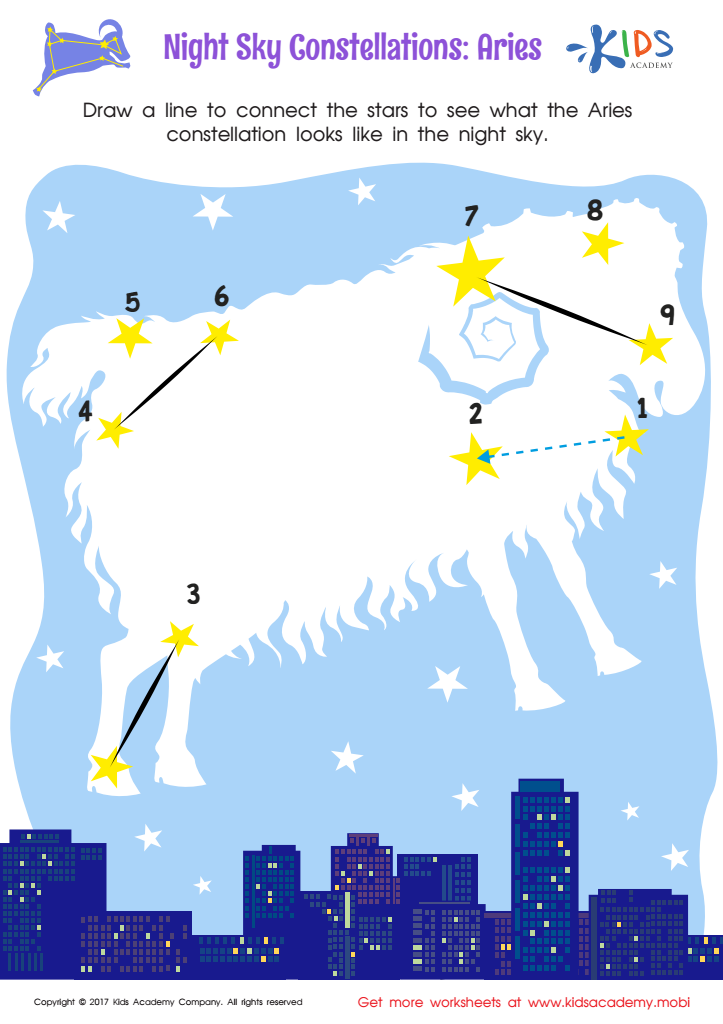

Night Sky Constellations: Aries Worksheet
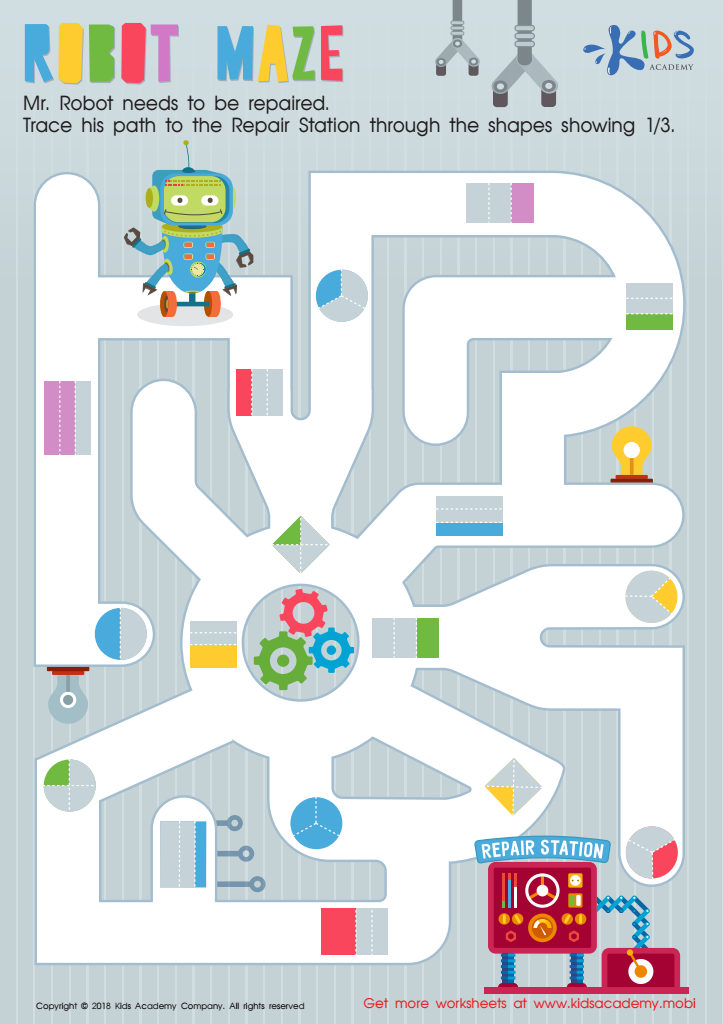

Robot Maze Worksheet
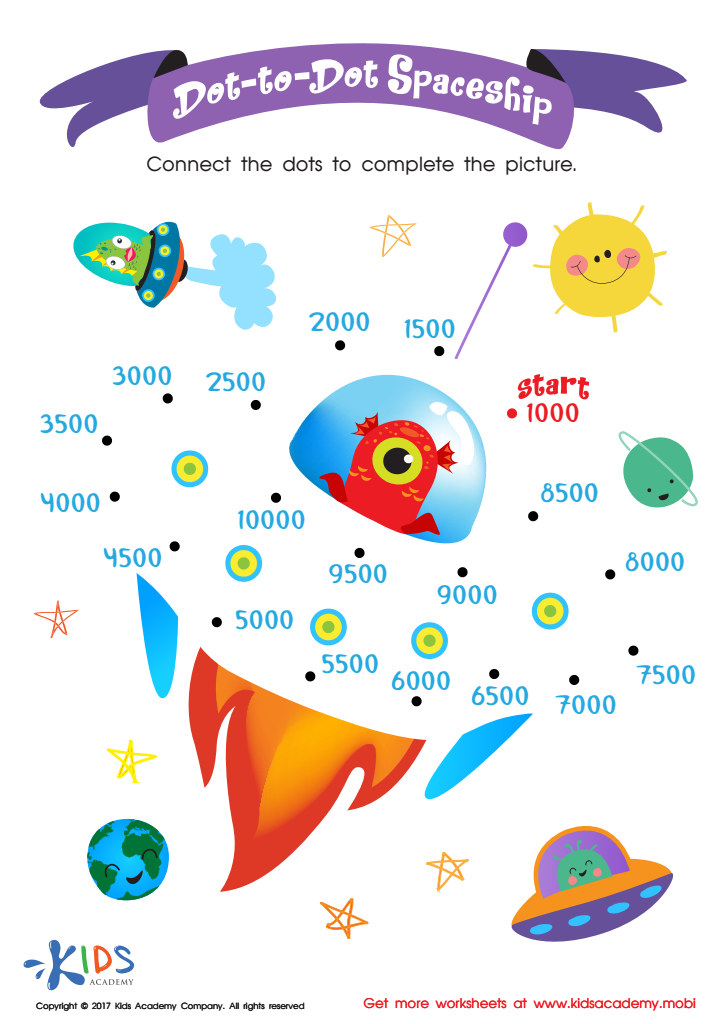

Dot to Dot Worksheet for 3rd Grade
Connecting the Dots activities are an essential part of early childhood education for children aged 3-9. These activities help develop crucial skills in young learners, making them beneficial for both parents and teachers. Firstly, they enhance fine motor skills as children use hand-eye coordination to connect dots, which is foundational for tasks such as writing and drawing. This form of dexterity is critical during these formative years.
Additionally, Connecting the Dots activities promote cognitive development, encouraging problem-solving and critical thinking. As children recognize patterns and make connections, they improve their ability to follow instructions and understand sequencing. These cognitive skills are building blocks for later academic success.
Furthermore, these engaging activities can be adapted to various themes, fostering creativity and imagination. They can be integrated into lessons, allowing teachers to emphasize concepts in a fun way, reinforcing learning while maintaining interest.
For parents, participating in these activities provides valuable bonding time, reinforcing the relationship between parent and child. Moreover, they can stimulate discussions that improve language skills. Overall, Connecting the Dots activities are multifaceted tools that nurture essential skills, promote engagement, and support holistic development in young children, making them crucial for educational environments.
 Assign to My Students
Assign to My Students
